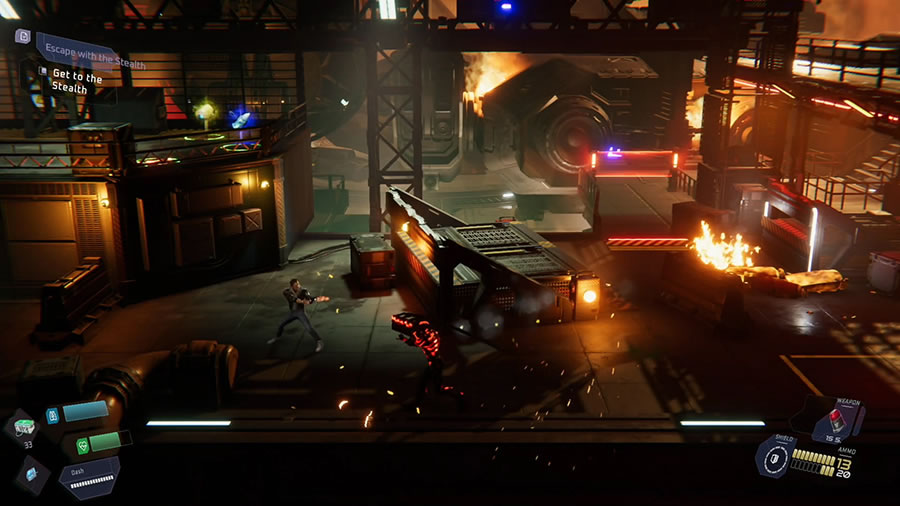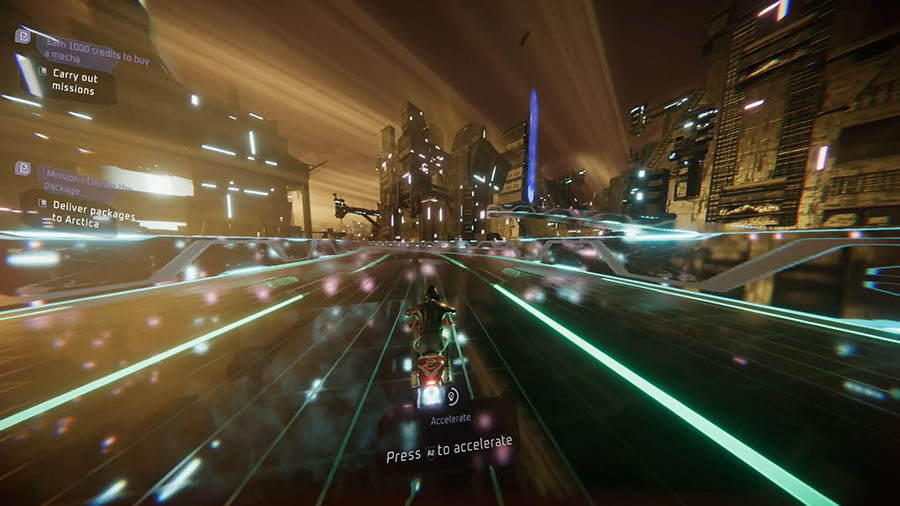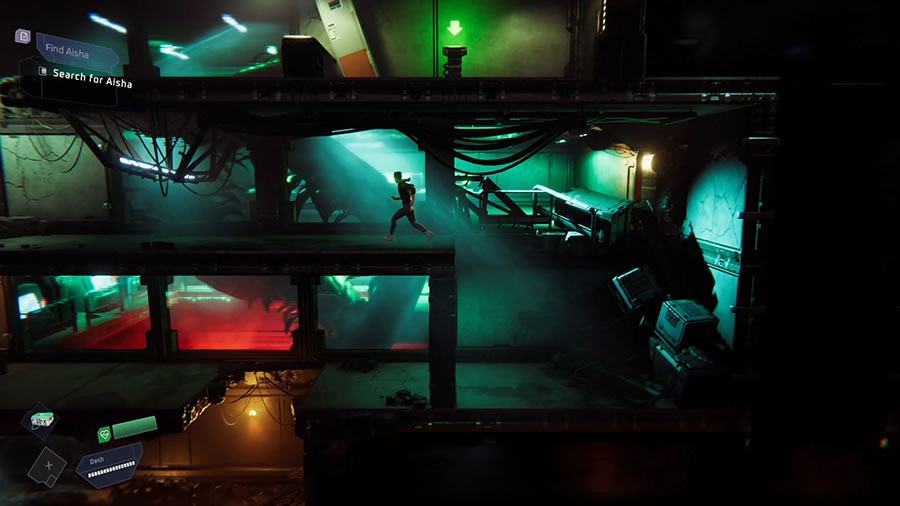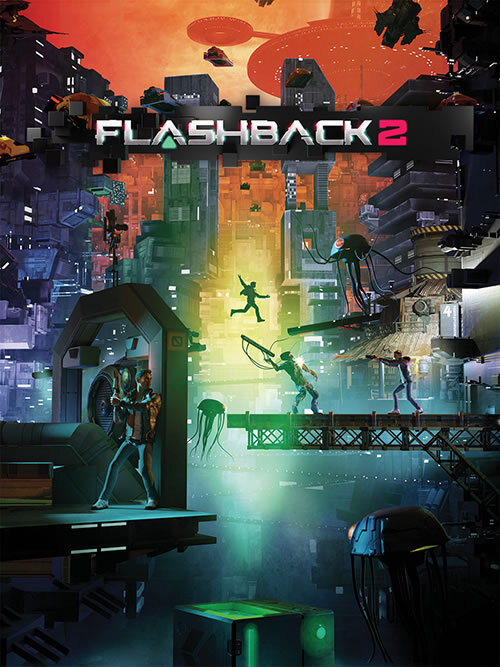- CLASSIC MAGAZINES
- REVIEW CREW
A show recapping what critics thought back
when classic games first came out! - NEXT GENERATION'S BEST & WORST
From the worst 1-star reviews to the best
5-stars can offer, this is Next Generation! - NINTENDO POWER (ARCHIVE)
Experience a variety of shows looking at the
often baffling history of Nintendo Power! - MAGAZINE RETROSPECTIVE
We're looking at the absolutely true history of
some of the most iconic game magazines ever! - SUPER PLAY'S TOP 600
The longest and most ambitious Super NES
countdown on the internet! - THEY SAID WHAT?
Debunking predictions and gossip found
in classic video game magazines! - NEXT GENERATION UNCOVERED
Cyril is back in this spin-off series, featuring the
cover critic review the art of Next Generation! - HARDCORE GAMER MAGAZING (PDF ISSUES)
Download all 36 issues of Hardcore Gamer
Magazine and relive the fun in PDF form!
- REVIEW CREW
- ELECTRONIC GAMING MONTHLY
- ELECTRONIC GAMING MONTHLY RANKS
From Mario to Sonic to Street Fighter, EGM
ranks classic game franchises and consoles! - ELECTRONIC GAMING MONTHLY BEST & WORST
Counting down EGM’s best and worst reviews
going year by year, from 1989 – 2009! - ELECTRONIC GAMING BEST & WORST AWARDS
11-part video series chronicling the ups and
downs of EGM’s Best & Worst Awards!
- ELECTRONIC GAMING MONTHLY RANKS
- GAME HISTORY
- GAME OVER: STORY BREAKDOWNS
Long-running series breaking down game
stories and analyzing their endings! - A BRIEF HISTORY OF GAMING w/ [NAME HERE]
Real history presented in a fun and pithy
format from a variety of game historians! - THE BLACK SHEEP
A series looking back at the black sheep
entries in popular game franchises! - INSTANT EXPERT
Everything you could possibly want to know
about a wide variety of gaming topics! - FREEZE FRAME
When something familiar happens in the games
industry, we're there to take a picture! - I'VE GOT YOUR NUMBER
Learn real video game history through a series
of number-themed episodes, starting at zero! - GREAT MOMENTS IN BAD ACTING
A joyous celebration of some of gaming's
absolute worst voice acting!
- GAME OVER: STORY BREAKDOWNS
- POPULAR SHOWS
- DG NEWS w/ LORNE RISELEY
Newsman Lorne Riseley hosts a regular
series looking at the hottest gaming news! - REVIEW REWIND
Cyril replays a game he reviewed 10+ years
ago to see if he got it right or wrong! - ON-RUNNING FEUDS
Defunct Games' longest-running show, with
editorials, observations and other fun oddities! - DEFUNCT GAMES QUIZ (ARCHIVE)
From online quizzes to game shows, we're
putting your video game knowledge to the test!- QUIZ: ONLINE PASS
Take a weekly quiz to see how well you know
the news and current gaming events! - QUIZ: KNOW THE GAME
One-on-one quiz show where contestants
find out if they actually know classic games! - QUIZ: THE LEADERBOARD
Can you guess the game based on the classic
review? Find out with The Leaderboard!
- QUIZ: ONLINE PASS
- DEFUNCT GAMES VS.
Cyril and the Defunct Games staff isn't afraid
to choose their favorite games and more! - CYRIL READS WORLDS OF POWER
Defunct Games recreates classic game
novelizations through the audio book format!
- DG NEWS w/ LORNE RISELEY
- COMEDY
- GAME EXPECTANCY
How long will your favorite hero live? We crunch
the numbers in this series about dying! - VIDEO GAME ADVICE
Famous game characters answer real personal
advice questions with a humorous slant! - FAKE GAMES: GUERILLA SCRAPBOOK
A long-running series about fake games and
the people who love them (covers included)! - WORST GAME EVER
A contest that attempts to create the worst
video game ever made, complete with covers! - LEVEL 1 STORIES
Literature based on the first stages of some
of your favorite classic video games! - THE COVER CRITIC
One of Defunct Games' earliest shows, Cover
Critic digs up some of the worst box art ever! - COMMERCIAL BREAK
Take a trip through some of the best and
worst video game advertisements of all time! - COMIC BOOK MODS
You've never seen comics like this before.
A curious mix of rewritten video game comics!
- GAME EXPECTANCY
- SERIES ARCHIVE
- NINTENDO SWITCH ONLINE ARCHIVE
A regularly-updated list of every Nintendo
Switch Online release, plus links to review! - PLAYSTATION PLUS CLASSIC ARCHIVE
A comprehensive list of every PlayStation
Plus classic release, including links! - RETRO-BIT PUBLISHING ARCHIVE
A regularly-updated list of every Retro-Bit
game released! - REVIEW MARATHONS w/ ADAM WALLACE
Join critic Adam Wallace as he takes us on a
classic review marathon with different themes!- DEFUNCT GAMES GOLF CLUB
Adam Wallace takes to the links to slice his way
through 72 classic golf game reviews! - 007 IN PIXELS
Adam Wallace takes on the world's greatest spy
as he reviews 15 weeks of James Bond games! - A SALUTE TO VAMPIRES
Adam Wallace is sinking his teeth into a series
covering Castlevania, BloodRayne and more! - CAPCOM'S CURSE
Adam Wallace is celebrating 13 days of Halloween
with a line-up of Capcom's scariest games! - THE FALL OF SUPERMAN
Adam Wallace is a man of steel for playing
some of the absolute worst Superman games! - THE 31 GAMES OF HALLOWEEN
Adam Wallace spends every day of October afraid
as he reviews some of the scariest games ever! - 12 WEEKS OF STAR TREK
Adam Wallace boldly goes where no critic has
gone before in this Star Trek marathon!
- DEFUNCT GAMES GOLF CLUB
- DAYS OF CHRISTMAS (ARCHIVE)
Annual holiday series with themed-episodes
that date all the way back to 2001!- 2015: 30 Ridiculous Retro Rumors
- 2014: 29 Magazines of Christmas
- 2013: 29 Questionable Power-Ups of Christmas
- 2012: 34 Theme Songs of Christmas
- 2011: 32 Game Endings of Christmas
- 2010: 31 Bonus Levels of Christmas
- 2009: 30 Genres of Christmas
- 2008: 29 Controls of Christmas
- 2007: 34 Cliches of Christmas
- 2006: 33 Consoles of Christmas
- 2005: 32 Articles of Christmas
- 2004: 31 Websites of Christmas
- 2003: 29 Issues of Christmas
- 2002: 28 Years of Christmas
- 2001: 33 Days of Christmas
- NINTENDO SWITCH ONLINE ARCHIVE
- REVIEW ARCHIVE
- FULL ARCHIVE
Flashback 2
If there’s one thing I’ve learned from this era of reboots and requels, it’s that you can’t go home again. You may think that you want to see your favorite 1980s and ‘90s sitcoms and movie franchises revived for the 2020s, but it’s not the same. The time and place that made them great has passed, and no matter if you want to admit it or not, there’s just no going back. Sadly, the latest victim of this frustrating trend is Flashback 2, the sequel to one of my favorite games of all time. This was one of video gaming’s seminal sci-fi stories, with many critics at the time comparing it to Blade Runner. And if Blade Runner can come back all these decades later with an amazing sequel, why can’t Flashback? Well, I’m here to tell you to lower your expectations, because this is a frustrating and often broken follow-up that left me conflicted in so many ways. This is my review of Flashback 2.
For me, Flashback: The Quest for Identity wasn’t just another side-scrolling action game – it was the realization that video games could have deep and involving stories that actually make you think. Using rotoscope animation to give the game a cinematic look, this took science fiction gaming well beyond the usual run ‘n gun antics of Contra. It had real twists and turns, fully-realized characters and a downbeat ending that left you, the player, to reflect on what the story ultimately meant. It had everything I was looking for from a game in 1993.
It also had a sequel. I’m of course talking about Fade to Black, the 1995 follow-up that picks up right where Flashback left off. While not as impactful as the original, this sequel continued the adventures of Conrad Hart and his fight against an evil species of morphing aliens, now with 3D graphics and a less ambitious story.
Now, it’s at this point where you’re probably wondering: If Fade to Black is the sequel to Flashback, then what is Flashback 2? Can both games exist or does it rewrite the first sequel out of existence? The answer to those question is yes ... and no. Actually, it’s complicated. This brand-new game picks up about halfway through the events of the first game, which is bound to create a lot of confusion right off the bat for anybody who played and remembers the original story. Why are we back on Titan? Is this game rewriting the events of the first Flashback? What is going on? And again, the answer to those questions is complicated.
Here's what you need to know: Conrad Hart crashes on Titan after a failed attempt to get to Earth, forcing him to flee from the cops, work for a gangster and team up with a group of resistance fighters who are attempting to save the world from a species of shape-shifting aliens who are looking to overthrow the government. Along the way, he’ll need to rescue captured friends, track down useful gadgets and visit familiar locations, all while getting to the bottom of just what the hell is going on.
The truth is, I kind of love how baffling the set-up is. Instead of a video game character being dropped in the jungle with amnesia, it’s us who feel like we suffered a massive blow to the head. This got me excited right off the bat, as it signaled that we might be getting the same type of twisty science fiction story that made the first game so good. I couldn’t wait to see how they got themselves out of this paradox, especially if it had something to do with crazy science and fun future tech. I wanted my head to spin with all the twists and turns.
And, at least in that sense, Flashback 2 delivers. If the main reason you loved the original game was its ambitious sci-fi story, then there’s a lot to like about this sequel. It does a surprisingly good job mirroring a lot of the story elements found in the original game, in both subtle and obvious ways. For example, we spend the early parts of the game taking freelance jobs in order to enter a contest, not unlike what Conrad had to do in the first game. You’ll also go to some of the iconic locations from the original, like the jungle on Titan. But just when things start to feel a little too familiar, the game does a good job of subverting your expectations and adding something new to the story. This is a sequel that will leave you guessing, and there are some revelations deep in the story that have the potential to reshape how you view the original story.
This is one of those games that should have been released twenty-five years ago. Believe it or not, the story compares favorably with the original and actually leaves the franchise in an interesting spot. The narrative here is much more engaging than the other sequel, Fade to Black. The problem is that by 2023 standards, the original story feels simple and rudimentary. Yes, it was ambitious for its time, but has been usurped by a whole library of recent science fiction games. In that sense, some of what made that first game so special and unique is lost on this sequel, which is that nagging reminder that nostalgia is all about time and place.
Story aside, Flashback 2 makes a number of changes to the way the game plays. Thankfully, this is more like the original Flashback than the woefully outdated 3D gameplay found in Fade to Black. While not exactly side-scrolling, this sequel gives us a lot of fixed camera angles that will have Conrad running left and right. The animation isn’t rotoscoped, but it is definitely made the resemble the look and feel of that first game, though I would argue that the controls are a lot more forgiving in this sequel.
In a lot of ways, this feels like a throwback to the early days of 3D gaming. It essentially takes the gameplay of the original and slots it into a slightly more three-dimensional world. You can really feel the addition of the 3D elements in the jungle, where the paths tend to split in more directions than just left and right. That said, when you get into the more enclosed areas, like an underground mech facility, the level designs take a much more 2D approach. While some may balk at these changes, I think what they were going for ultimately makes sense and is a good way to evolve the series without making it feel too modern.
And then there’s the combat, which I simultaneously love and hate. The good news is that it’s easier to shoot at multiple targets with this new dual-stick approach. Yes, it’s a little awkward when we switch from 3D to 2D sections, but the game accounts for this by giving us a generous lock-on system. Some of my favorite moments in this game come when I’m dodging enemy fire and shooting at aliens coming from all sides. When it works, the action can be a lot of fun.
The problem is that when it doesn’t work, the action is absolutely miserable. I mentioned the targeting, and while the lock on certainly helps, it doesn’t always work as advertised. This leaves you vulnerable to a lot of cheap shots coming at you from all sides. What makes this especially frustrating is that those cheap shots take a surprising amount of health, which makes Conrad feel too fragile. The game is a lot of fun when the enemies are manageable, but things quickly spiral out of control any time you have a big group ganging up on our hero. This is especially bad in the back half of the game, when every enemy takes a couple dozen bullets to take down.
This is clearly a problem that the developers realized early on, because you can see them trying their hardest to offset this issue. For example, when Conrad dies, he can just resume right from where he left off, no questions asked. There’s also a shield suit that will give him a little more protection. And if that doesn’t work, the game is littered with health kits that will fill up your life at the push of a button. There were times when I was holding 40 or 50 of these kits, and it’s not like I was saving them for a rainy day. I probably picked up hundreds of these items, which is a constant reminder that the game knows that you’re taking cheap hits and the developers don’t know how to solve that problem.
And that’s not the only problem the developers don’t know how to solve. To put it as politely as I can – Flashback 2 is broken. It’s a kind of busted that seems to affect every part of the game, right down to the ending. You’ll notice it early on when the game makes it hard for you to pick up an item or trigger an elevator because the prompt is incredibly finicky. You’ll notice it when you try to crouch through a narrow area and get stuck in the level geometry, something that happens repeatedly throughout the course of the game.
There’s one point towards the end that wants you to switch between your flow meter and the glasses used to determine who is and isn’t a morph alien. Simple enough, right? Wrong! Because the game simply refuses to let you make that switch, even when there’s a hint box telling you exactly what you need to do. I had to go back several save points just to get the damn thing to work right. And then there’s the ending, which didn’t even play for me. When I beat the game, all I saw was a black screen with a “skip” icon and some audio. No visuals or anything, just a black screen of nothingness.
And that brings us to the rampant frame rate issues, which keep this game from looking as silky smooth as the rotoscoped original. This is something that constantly plagues the action scenes, but it doesn’t stop there. You see the awful stuttering problems show up in some of the more important cinemas, especially towards the end. This is a shame, because there are a lot of cinemas that don’t have that problem and look a lot better. In fact, I would argue that most of the cinemas in the first-half of the game have a cool style and are executed well.
And did I mention that the voice acting is all over the place? Conrad is fine, but the supporting cast feels like the developers hired their friends and family to get the job done, not professional voice actors. For example, when we run errands for one of New Washington’s most notorious gangsters, the voice actor comes off sounding like somebody doing their best Godfather impression. It’s even worse when you talk to the random people on the street who only have a few lines to perform. I found the bad voice acting to be distracting and pulled me out of the experience. It would have been so much better without the voices.
I could go on, but you get the point. Flashback 2 is a big disappointment. Sure, it has some cool story elements going for it and I love how confusing the set-up is, but the game is too broken to recommend. And that’s a shame, because I like a lot of the story and the small things they’ve done to make it feel like a Flashback game. You can see what they were going for and there’s a lot of potential in that idea, but this is a game that is letdown by its execution. Even if they were somehow able to fix the bugs and performance issues, you would still be left with a game with frustrating combat and terrible voice acting. That sucks, and the fans deserve a lot better.
HOME |
CONTACT |
NOW HIRING |
WHAT IS DEFUNCT GAMES? |
NINTENDO SWITCH ONLINE |
RETRO-BIT PUBLISHING
Retro-Bit |
Switch Planet |
The Halcyon Show |
Same Name, Different Game |
Dragnix |
Press the Buttons
Game Zone Online | Hardcore Gamer | The Dreamcast Junkyard | Video Game Blogger
Dr Strife | Games For Lunch | Mondo Cool Cast | Boxed Pixels | Sega CD Universe | Gaming Trend
Game Zone Online | Hardcore Gamer | The Dreamcast Junkyard | Video Game Blogger
Dr Strife | Games For Lunch | Mondo Cool Cast | Boxed Pixels | Sega CD Universe | Gaming Trend
Copyright © 2001-2025 Defunct Games
All rights reserved. All trademarks are properties of their respective owners.
All rights reserved. All trademarks are properties of their respective owners.






































